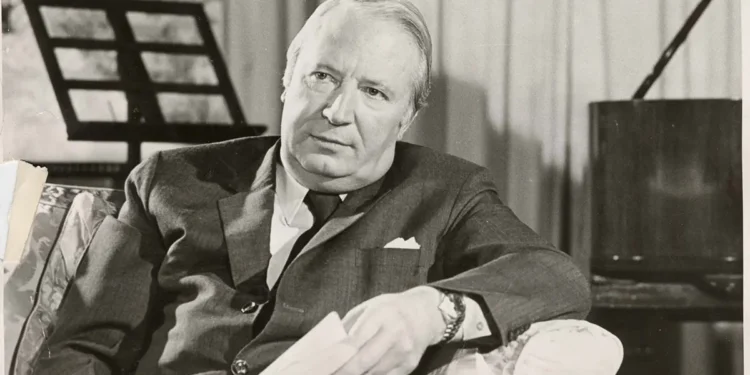Over fifty years ago, the United Kingdom underwent a profound transformation, one that would reverberate through its societal and economic fabric. This transformation was precipitated by the 1973 energy crisis, a pivotal moment in history that challenged existing norms and conventions, leaving a lasting impact on the nation’s trajectory. This article aims to delve deeper into this critical period, examining the multifaceted impacts and the enduring lessons it imparted.
Introduction to the 1973 Energy Crisis
In the winter of 1973, the United Kingdom stood on the brink of an unprecedented challenge. Faced with a severe energy shortage, Prime Minister Edward Heath made a bold and controversial decision: the implementation of a three-day working week. This was not merely a strategy for energy conservation; it was a litmus test for the nation’s resilience and capacity for adaptation. The move was drastic and its implications far-reaching, affecting every corner of British life.
The Three-Day Work Week: A New Reality
The introduction of the three-day work week marked a radical departure from the norm. Businesses across the country were suddenly restricted to operating merely three days a week. This dramatic reduction in operational hours had a profound impact on the national economy and individual productivity. It challenged long-standing perceptions of work, efficiency, and economic stability. Companies and employees alike had to navigate this new landscape, balancing the need to maintain productivity with the limitations imposed by the crisis.
The Ripple Effect on Households
The repercussions of the crisis extended far beyond the confines of the workplace, deeply affecting household dynamics across the UK. The reduction in working hours led to a corresponding decrease in household incomes, forcing families to tighten their belts. This period of austerity saw a shift in lifestyle, with many finding solace and contentment in simpler, more frugal ways of living. It was a time of significant adjustment, as people redefined their daily routines and priorities in response to the new economic realities.
Industrial Innovation in Times of Crisis
One of the more positive outcomes of the crisis was the impetus it provided for industrial innovation. Confronted with stringent limitations, industries were compelled to rethink their operations and explore new avenues. This era witnessed a notable surge in the development and adoption of alternative energy sources, marking the beginning of a more sustainable approach to resource management. The crisis acted as a catalyst for change, laying the foundation for future advancements in sustainable practices and technologies.
Shifting Perspectives on Work-Life Balance
Perhaps one of the most significant societal changes triggered by the crisis was the evolving conversation around work-life balance. The enforced reduction in working hours prompted a reevaluation of the traditional work ethic. The focus shifted from the quantity of work hours to the quality and efficiency of work. This change in perspective had a profound impact on how individuals viewed their professional commitments in relation to their personal lives, leading to a more holistic understanding of work-life integration.

The Political Aftermath and Thatcher’s Rise
The 1973 energy crisis not only reshaped the British economy and society but also had profound political consequences. The government’s response to the crisis, particularly the implementation of the three-day work week, was met with widespread public discontent. These unpopular measures significantly impacted the political landscape, contributing to the Conservative Party’s electoral setbacks. The dissatisfaction with the government’s handling of the crisis created a political vacuum, setting the stage for a dramatic shift in leadership.
This period of turmoil and discontent paved the way for the rise of Margaret Thatcher. Thatcher, a figure who would become synonymous with a new era in British politics, capitalised on the public’s desire for change. Her ascent to leadership marked a significant departure from the existing political norms and heralded the beginning of a new ideological era in British politics. Thatcher’s policies and approach to governance would go on to shape the political discourse in the UK for decades to come.
Sustainable Living: A Discussion Ignited
The energy crisis of 1973 also served as a catalyst for a broader discussion on sustainable living. As the nation grappled with the realities of energy shortages and its implications, there was a growing awareness of the need for a more sustainable approach to life. People began to reconsider the long-term impact of their lifestyle choices, particularly in relation to energy consumption and environmental conservation.
This shift in mindset was significant, marking a departure from the previously prevalent attitude of resource abundance. The crisis brought to the forefront the importance of environmental stewardship and the need for a more conscientious approach to resource utilisation. It sparked a national conversation about sustainability that would lay the groundwork for future environmental initiatives and policies.
British Resilience and Ingenuity
Amidst the challenges posed by the energy crisis, the British people exhibited remarkable resilience and ingenuity. Faced with unprecedented circumstances, individuals and communities found innovative ways to cope with the limitations and disruptions to their daily lives. This period highlighted the human capacity to adapt, improvise, and overcome adversity.
The resilience and ingenuity displayed during this time are reflective of a broader national spirit. The ability to endure and find creative solutions in the face of hardship became a defining characteristic of the British response to the crisis. This resilience would become a source of national pride and a testament to the enduring spirit of the British people.
Lessons for the Modern Workforce
The 1973 energy crisis offers enduring lessons for today’s workforce. One of the key takeaways is the importance of flexibility and adaptability in the face of change. The crisis demonstrated that traditional models of work and productivity could be challenged and reimagined in response to external pressures.
Additionally, the crisis underscored the value of innovation and sustainability in professional practices. It highlighted the need for industries and businesses to be forward-thinking and environmentally conscious in their operations. These lessons remain relevant in the modern context, where issues of sustainability and adaptability continue to be at the forefront of the workforce discourse.
The Legacy of the Crisis
In conclusion, the 1973 energy crisis was more than a momentary disruption; it was a transformative event with far-reaching implications. Its legacy extends beyond the immediate economic and social impacts, influencing ongoing discussions about work, sustainability, and national resilience. The crisis served as a turning point, prompting a reevaluation of societal values and priorities. Its enduring lessons continue to resonate, offering insights into the capacity for innovation, adaptability, and sustainable living in the face of challenges.
FAQs
1. What caused the 1973 UK Energy Crisis?
The crisis was primarily due to reduced coal and oil availability, leading to a nationwide energy shortage.
2. How did the Three-Day Work Week impact businesses?
Businesses faced significant challenges in maintaining productivity and profitability with reduced operating hours.
3. What innovations emerged from the crisis?
The crisis spurred innovation in alternative energy sources and more efficient industrial practices.
4. How did the crisis affect work-life balance?
It led to a re-evaluation of work-life balance, emphasising efficiency over long working hours.
5. What long-term effects did the crisis have?
The crisis had lasting impacts on energy policies, work culture, and environmental consciousness.








